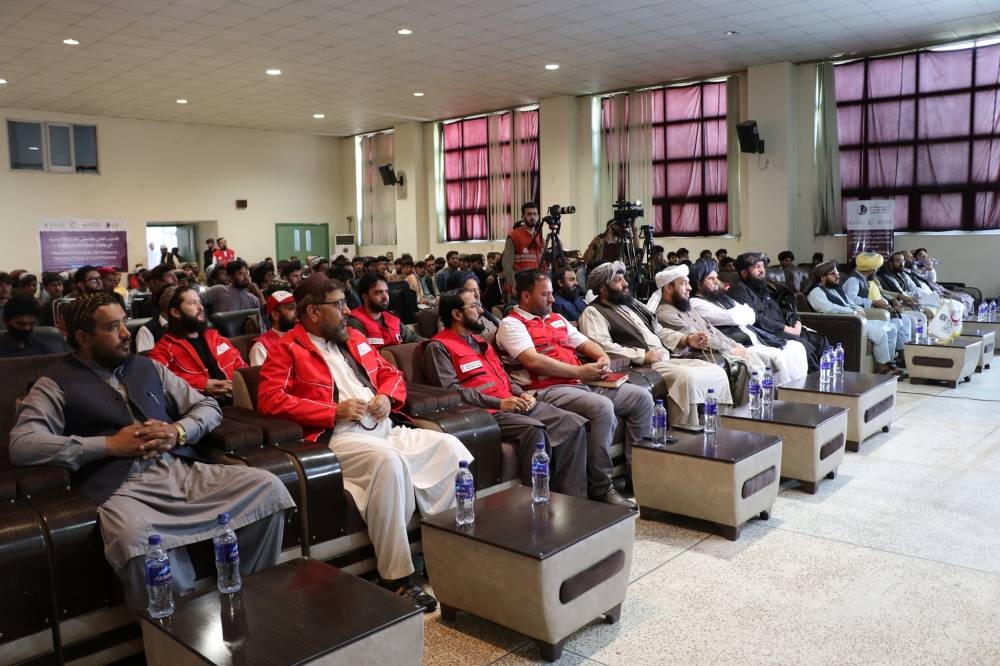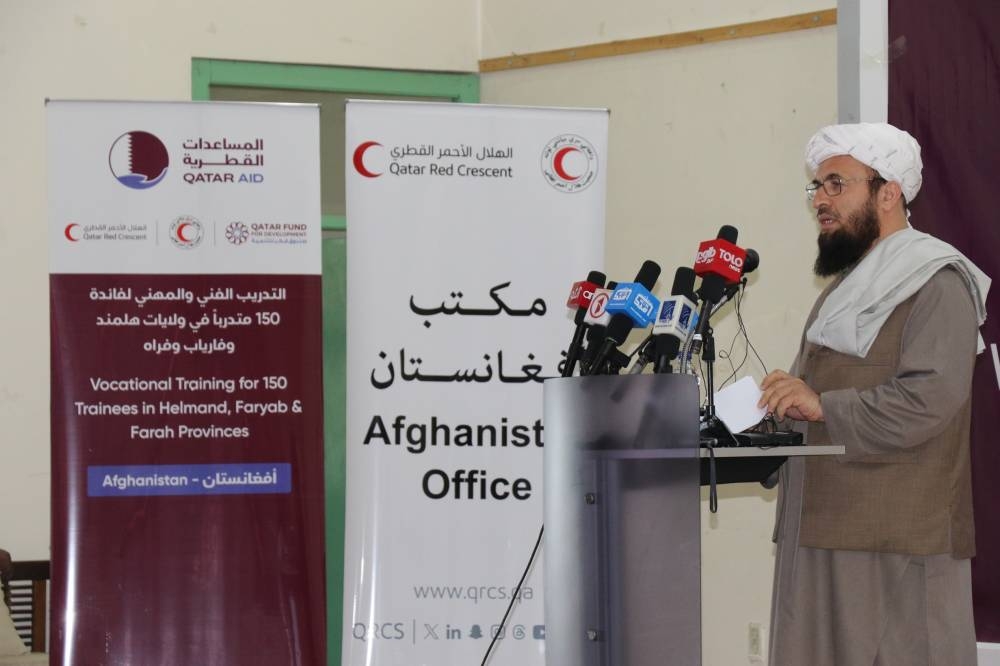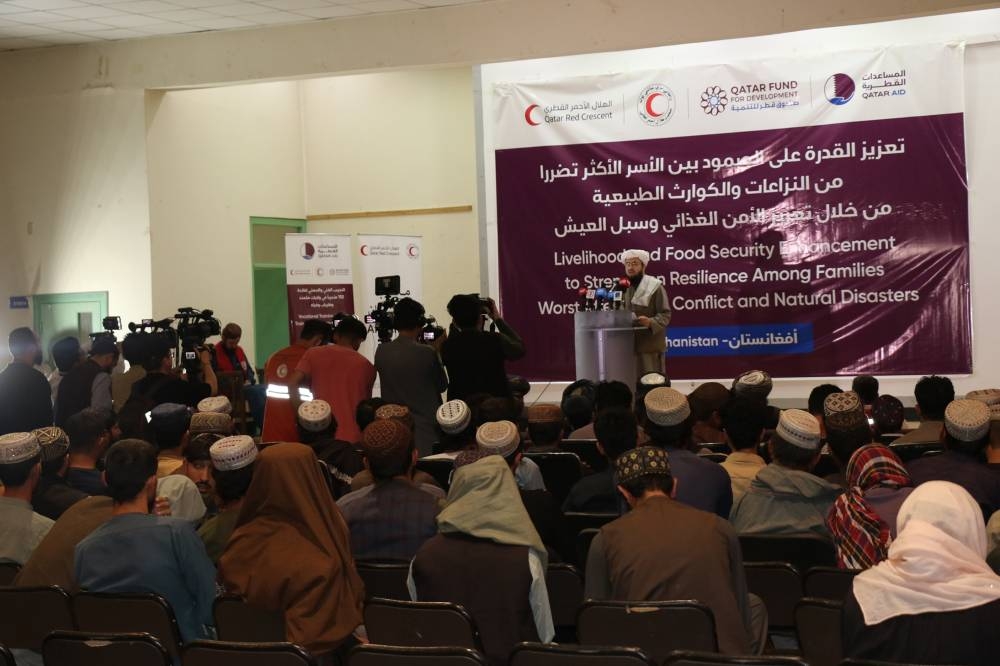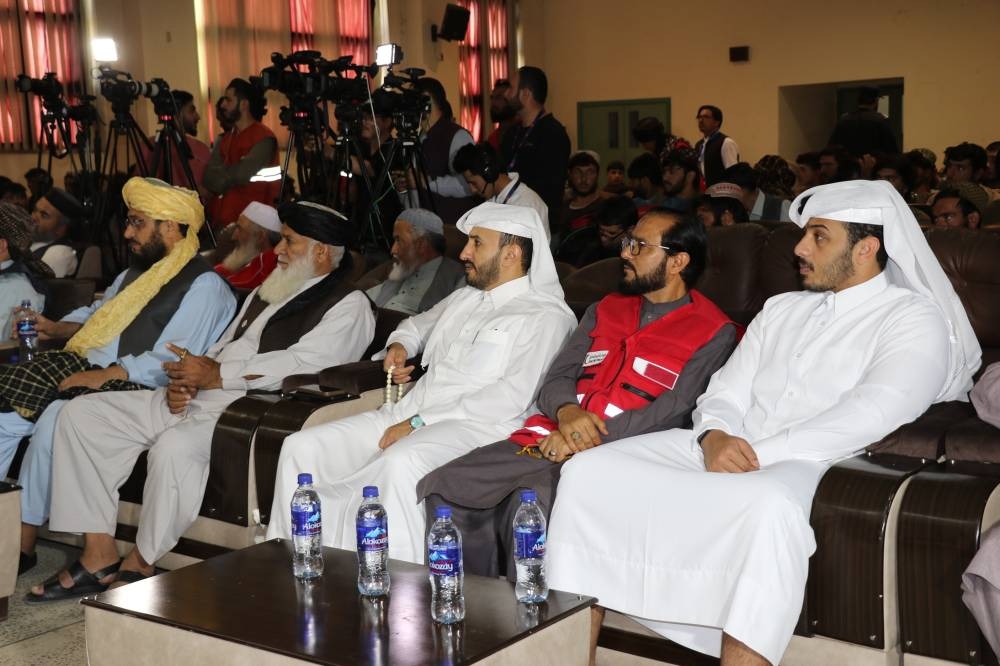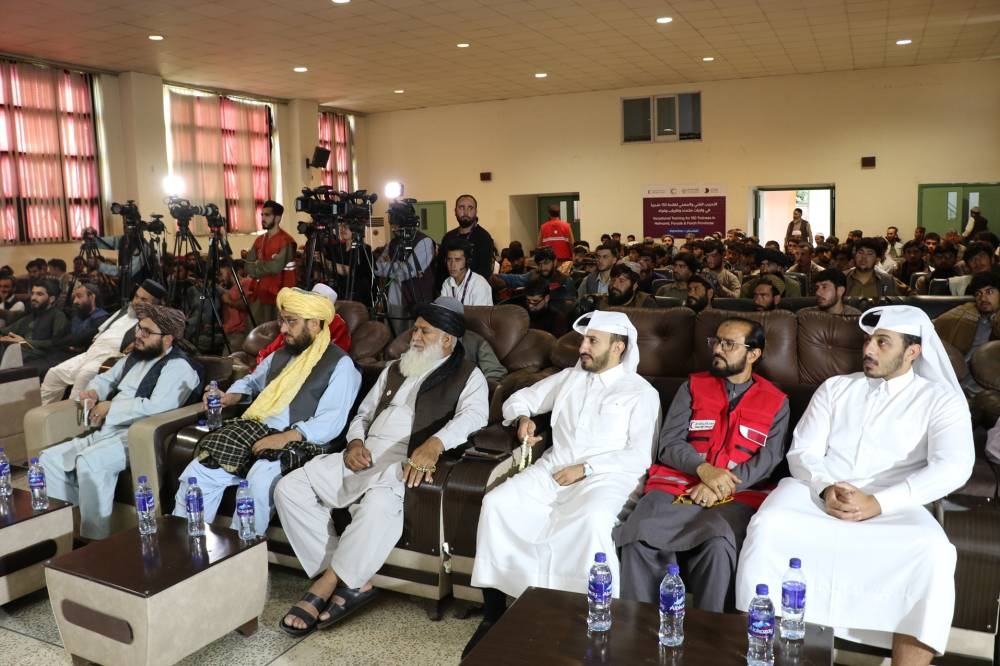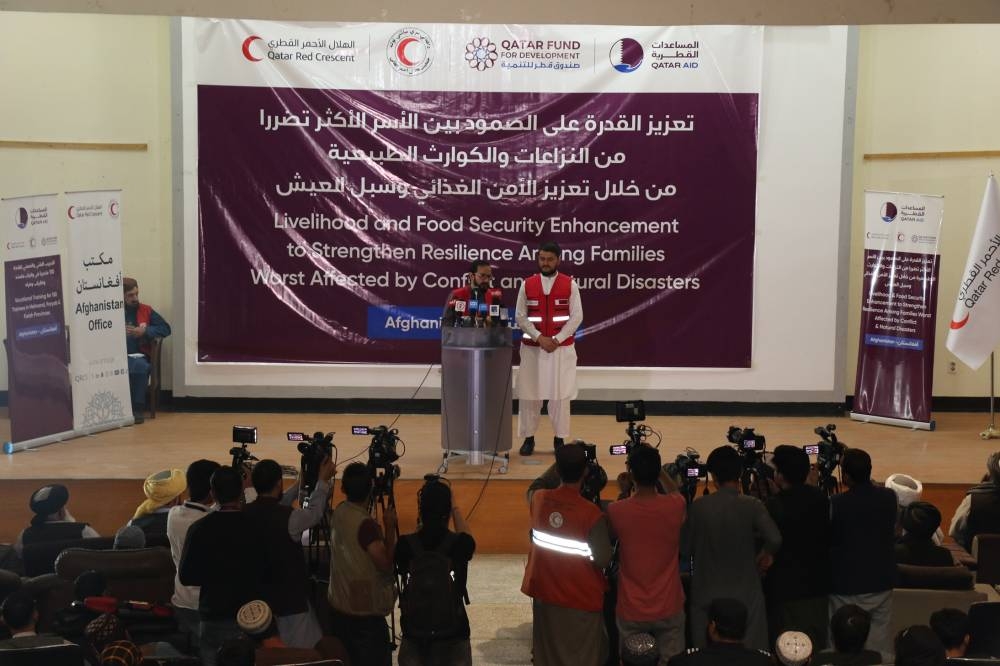Co-implemented by QRCS’s representation office in Afghanistan and the Afghan Red Crescent Society (ARCS), the project is aimed at making the communities most affected by conflicts and natural disasters in Faryab, Farah, and Helmand provinces more resilient, by distributing basic food supplies to 800 families, or about 5,600 people, from the most vulnerable families in the target provinces, as well as helping them start productive, income-generating enterprises.
The first component of the project has recently been initiated at the Afghan-Korean Vocational Training Institute (AKVTI) in Kabul, with five-month vocational and technical training workshops for 150 trainees.
The inauguration ceremony was attended by HE Dr. Mirdef Al-Qashouti, Advisor to the Embassy of Qatar in Kabul, Sheikh Hafiz Aziz Rahman, Vice-President of ARCS, Sheikh Abdul-Bar, Undersecretary of Afghanistan’s Ministry of Labor and Social Affairs, ARCS officials, and QRCS team in Afghanistan, as well as representatives of AKVTI, the International Federation of Red Cross and Red Crescent Societies (IFRC), and concerned organizations.
The areas of training offered include electricity, carpentry, auto/engine mechanics, A/C and refrigeration, and others. After completing the training program, the trainees will receive technical certification from AKVTI.
All costs of tuition fees, training supplies, living, accommodation, local transportation, and travel expenses from and to Kabul are covered by the project.
Generally, the project comprises five components, as follows:
- Distribution of food parcels, each containing 90 kg of food staples like flour, rice, beans, sugar, vegetable oil, and green tea, for the benefit of 800 poor and affected families at three distribution hubs.
- Three-month sewing training for 250 women and girls from poor and affected families, as well as provision of sewing machines and supplies to start income-generating businesses that help themselves and their families.
- Three-month embroidery training for 250 women and girls from poor and affected families, as well as provision of tools and supplies to start income-generating businesses that help themselves and their families.
- Distribution of livestock for the benefit of 150 poor and affected families, with each family receiving one cow or four heads of sheep, as well as educational and informative programs to ensure the best outcomes for animal husbandry/production.
- Five-month diverse vocational training for 150 people from poor and affected families at AKVTI in Kabul, to help them practice handicrafts and secure the basic needs for themselves and their families.

